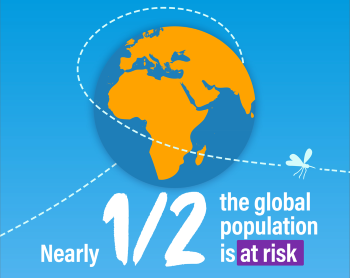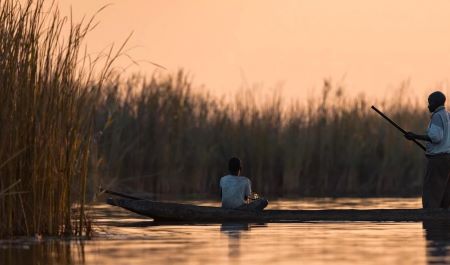A recent photo series by Maasai photographers Claire Metito and Irene Naneu chronicles the growing care burden facing pastoralist women in Kenya who are on the frontline of the climate crisis. Visual storytelling is a powerful tool for their community, which faces marginalisation and illiteracy, and a way to disrupt the barriers that often keep their realities and perspectives from full view. Capturing the everyday experiences of two older women, the photographers provide an intimate view of the increased, and often undervalued, domestic load that they are shouldering to secure food, water, and fuel for their families.
“Getting behind the camera and hearing how people are being affected, that’s when I truly understood the extent of the situation we are facing with climate change.” – Irene Naneu
Click here to view Claire Metito’s and Irene Naneu’s images and to learn more about the daily lives of the women they have photographed.
And click here to learn about the non-profit organization Lensational, whose mission is to equip women from underrepresented groups and communities with cameras and photography training so they can express themselves and represent themselves with dignity.
Cause for celebration! A global coalition of Civil Society Organizations, of which GRAN was a part, has won the prestigious 2023 United Nations Human Rights Prize. It is an honorary award given out every five years to individuals and organizations in recognition of outstanding achievement in human rights. The Prize is an opportunity not only to give public recognition to the achievements of the recipients themselves, but also to send a clear message of support to human rights defenders around the world. This year is the first time since its inception in 1966 that the award has been granted to a global coalition.
The Global Coalition of Civil Society, Indigenous Peoples, Social Movements, and Local Communities for the Universal Recognition of the Right to a Clean, Healthy, and Sustainable Environment accepted the Human Rights Prize in a ceremony in New York this past week. GRAN received a congratulatory note from the Coalition saying, "We are extremely grateful that you and your organization joined the coalition and supported its work. Congratulations to each of you and to Grandmothers Advocacy Network (GRAN)!"
Click here to read the full press release on this prestigious award, and here to read the Coalition's global call for the Right to a safe, clean, healthy and sustainable environment.
We invite you to celebrate with us the power of partnerships. Congratulations, GRANs!
The 2030 Agenda for Sustainable Development was adopted by all United Nations Member States in 2015, and provides a shared blueprint for peace and prosperity for people and the planet. At its heart are the 17 Sustainable Development Goals (SDGs), which are an urgent call for action by all countries in global partnership. The goals recognize that ending poverty and other deprivations must go hand-in-hand with strategies that improve health and education, reduce inequality, and spur economic growth – all while tackling climate change and working to preserve our oceans and forests. With only 15% of the Global Goals on track to be achieved by 2030, the UN is highlighting some of the proudest achievements of 2023 to show what is possible with the right resources, solutions, and determination. There is still time to turn things around and make the changes the world urgently needs.
You can read the Sustainable Development Goals year in review here.
The Elders have welcomed the signal from COP28 that the fossil fuel era must end. But they say that the actions agreed in Dubai are too little, too late. World leaders need more urgent ambition in addressing the existential threat of the climate crisis and supporting the most vulnerable. Click here to read the full statement from The Elders.
In a groundbreaking experiment in alleviating global poverty, for the past six years the U.S.- based charity GiveDirectly has been providing thousands of villagers in Kenya with a "universal basic income", delivered every month, with the commitment to keep the payments coming for 12 years. The charity has expanded the program and is currently running basic income programs in some of the poorest parts of Kenya, Malawi, Mozambique, and Liberia. Every eligible adult in a target region receives a monthly cash transfer specifically sized to lift them above the local extreme poverty line, usually between $30 and $60. This money is not a loan, but cash with no strings attached. Giving money so that people can choose how to use it recognizes that, within a community, every person has different needs. It enables families to buy what they need and have a consistent source of income, allowing them to invest in themselves and their children. To hear directly from those benefiting from the program, watch this 3-minute video and learn how seven families in a village in Malawi spend their basic income transfers.
A team of independent researchers has been studying the impacts of the Kenya project. This past week they released their preliminary results. Click here to learn more about the project, considered the world's largest and longest study on Universal Basic Income, and click here to read a summary of the early findings.
“This is a hard-fought historic agreement. It shows recognition that loss and damage is not a distant risk but part of the lived reality of almost half the world’s populations and that money is needed to reconstruct and rehabilitate if we are not to let the climate crisis reverse decades of development in moments.” -- Avinash Persaud, Special Envoy to Prime Minister of Barbados
At the opening plenary of COP28, a Loss and Damage Fund to help the world’s poorest and most vulnerable nations pay for the irreversible impacts of climate change was adopted, with founding pledges from the UAE, Germany, UK, Japan and the USA. Click here to find out more.
In a statement issued to mark the International Day for the Elimination of Violence Against Women, Yasmine Sherif, Executive Director of Education Cannot Wait, called for leaders everywhere to take firm, concrete action to put all the human rights of girls and women – especially their right to twelve years of safe, quality education – at the forefront of the international agenda.
“It is time to be loud and clear that no woman or girl can be subjected to any violation of their dignity, rights, freedoms and their person.”
Read Ms. Sherif’s statement here.
November 25th is the International Day for the Elimination of Violence Against Women and the start of the United Nations UNiTE Campaign: 16 Day of Activism to End Gender-Based Violence. Over the next two weeks, across the country, many GRANs are participating in actions to raise awareness in their communities.
In south-eastern Ontario, GRANquinte is raising awareness and encouraging people to donate to organizations supporting those affected by gender-based violence. Click here to read more about GRANquinte's efforts and here for UN Women's call to action.
According to UNICEF, despite global progress, at the current rate it will take another 300 years to end child marriage around the globe. Three of the world’s most influential women, Michelle Obama, Melinda French Gates, and Amal Clooney, have now joined forces to combat this human rights issue with greater urgency. They have announced a collaboration between their foundations with the intention to end child marriage. "It is an issue that can be solved tomorrow. If all the world leaders got together and made it a priority, it wouldn’t take 300 years. It could happen in less than a generation.” – Michele Obama
Read more about this collaboration here.
Canada has pledged $35.5 Million over the next three years to the Canadian Foodgrains Bank to help fund a new program called Nature Positive Food Systems for Climate Change Adaptation in East Africa. The multi-year program will help those living in rural areas of Ethiopia, Kenya, Mozambique and Zimbabwe use nature-based solutions to adapt to climate change and improve food security.
You can read more about the recent funding announcement here.
And click here for a 6-minute CBC radio interview with Michael Salomons, the Nature+ Program manager for the Canadian Foodgrains Bank.
Pages


